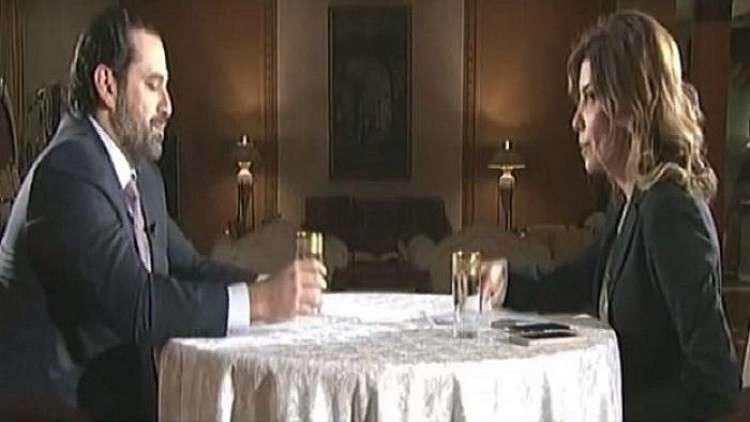Mr Djerejian, the director of the James Baker Institute for Public Policy at Rice University, served in eight Republican and Democratic administrations.
How do you view the developments in Lebanon beginning with Mr Hariri’s resignation and now the search for a political arrangement after his return?
"You cannot separate what is happening in Lebanon from the geopolitical regional picture. The Middle East is going through unprecedented turmoil and it can be traced back to the Arab Spring and the uprisings in 2011. We have witnessed tectonic shifts in the political landscape of the region, and we continue to see ramifications.
All the regimes are concerned with internal security and if they don’t proceed with structural reforms, uprisings may return and we could witness more insecurity within the region. There is a realisation that political economies need to work in order to even pretend to get ahead of the wave created by the Arab Spring."
How is that manifesting itself in Lebanon?
"On top of the internal situation, when we look at the external factors, the Iran-Saudi confrontation, the Sunni-Shia so-called, split which is more of a political split than sectarian, the GCC rift (Qatar), the war in Yemen, and now the situation in Lebanon as it has exploded in the last week, they all point to external confrontations and series of proxy conflicts.
"The Iraq invasion in 2003 opened the doors for Iran to consolidate its influence in Baghdad and move westward. Today, we see Iran as major supporter of Bashar Al Assad in Syria, as emboldening Hizbollah, as supporting the Houthis in Yemen, and building new proxies. Lebanon is one of those proxies, and the latest crisis cannot be divorced from the regional picture and seen as Lebanese affair, it’s far from it. Saad Hariri delivering the resignation statement from Riyadh speaks volumes to the regional dimension."
What does the resignation mean for Lebanon?
"The Saad Hariri government represented a difficult compromise since last year through a settlement between him and president Michel Aoun. The fragile balance of interests in Lebanon is now being upset by the resignation which evidently means that Lebanese politics can become more confrontational.
"It remains to be seen of what will happen after the resignation, but Mr Hariri’s removal as prime minister breaks the delicate balance, while making it unlikely that a credible Sunni figure could replace him anytime soon."
Where do you see Israel in what is happening? Does the resignation increase risk of military confrontation between Tel Aviv and Hizbollah?
"The Israelis are watching this very closely, and for the last two years their military intelligence has considered one of the most imminent threats to Israel is confrontation with Hizbollah. If Hizbollah is foolish enough to provoke Israel deliberately through miscalculation and there is another confrontation, they [Israelis] have made it very clear that they will hold the Lebanon government responsible. If they don’t have Saad Hariri [as an anti-Hizbollah force in the government], the justification to shield the government is gone. This makes it easier to hold Beirut responsible. Nevertheless, Israel is not looking for any war or confrontation, and neither is Hizbollah secretary general Hassan Nasrallah — but the potential is there."
What is the exit strategy?
"There is no viable exit strategy unless major players start pulling back, and by major players I mean Iran and Saudi. [They need to be] taking a step back in Yemen, in Iraq, in Lebanon.
"There is no military solution to the Lebanese crisis but serious compromises have to be made. Any military solution could deteriorate into another civil war, and Israel could step in."
Where do you see US diplomacy vis-a-vis all of this?
"The US should look at the region strategically, try to connect the dots and present a coherent strategy without illusions about our leverage and what we can do. The US can use important influence to conduct conflict resolution and not conflict management in the Middle East. That means working toward a solution in Yemen, ending the Qatar crisis, working with Russia on Syria, maintaining territorial agreement of Iraq, and ensuring stability in Lebanon. In all of that, Iran should understand it has to modify its behaviour."
-----------------
The National
How do you view the developments in Lebanon beginning with Mr Hariri’s resignation and now the search for a political arrangement after his return?
"You cannot separate what is happening in Lebanon from the geopolitical regional picture. The Middle East is going through unprecedented turmoil and it can be traced back to the Arab Spring and the uprisings in 2011. We have witnessed tectonic shifts in the political landscape of the region, and we continue to see ramifications.
All the regimes are concerned with internal security and if they don’t proceed with structural reforms, uprisings may return and we could witness more insecurity within the region. There is a realisation that political economies need to work in order to even pretend to get ahead of the wave created by the Arab Spring."
How is that manifesting itself in Lebanon?
"On top of the internal situation, when we look at the external factors, the Iran-Saudi confrontation, the Sunni-Shia so-called, split which is more of a political split than sectarian, the GCC rift (Qatar), the war in Yemen, and now the situation in Lebanon as it has exploded in the last week, they all point to external confrontations and series of proxy conflicts.
"The Iraq invasion in 2003 opened the doors for Iran to consolidate its influence in Baghdad and move westward. Today, we see Iran as major supporter of Bashar Al Assad in Syria, as emboldening Hizbollah, as supporting the Houthis in Yemen, and building new proxies. Lebanon is one of those proxies, and the latest crisis cannot be divorced from the regional picture and seen as Lebanese affair, it’s far from it. Saad Hariri delivering the resignation statement from Riyadh speaks volumes to the regional dimension."
What does the resignation mean for Lebanon?
"The Saad Hariri government represented a difficult compromise since last year through a settlement between him and president Michel Aoun. The fragile balance of interests in Lebanon is now being upset by the resignation which evidently means that Lebanese politics can become more confrontational.
"It remains to be seen of what will happen after the resignation, but Mr Hariri’s removal as prime minister breaks the delicate balance, while making it unlikely that a credible Sunni figure could replace him anytime soon."
Where do you see Israel in what is happening? Does the resignation increase risk of military confrontation between Tel Aviv and Hizbollah?
"The Israelis are watching this very closely, and for the last two years their military intelligence has considered one of the most imminent threats to Israel is confrontation with Hizbollah. If Hizbollah is foolish enough to provoke Israel deliberately through miscalculation and there is another confrontation, they [Israelis] have made it very clear that they will hold the Lebanon government responsible. If they don’t have Saad Hariri [as an anti-Hizbollah force in the government], the justification to shield the government is gone. This makes it easier to hold Beirut responsible. Nevertheless, Israel is not looking for any war or confrontation, and neither is Hizbollah secretary general Hassan Nasrallah — but the potential is there."
What is the exit strategy?
"There is no viable exit strategy unless major players start pulling back, and by major players I mean Iran and Saudi. [They need to be] taking a step back in Yemen, in Iraq, in Lebanon.
"There is no military solution to the Lebanese crisis but serious compromises have to be made. Any military solution could deteriorate into another civil war, and Israel could step in."
Where do you see US diplomacy vis-a-vis all of this?
"The US should look at the region strategically, try to connect the dots and present a coherent strategy without illusions about our leverage and what we can do. The US can use important influence to conduct conflict resolution and not conflict management in the Middle East. That means working toward a solution in Yemen, ending the Qatar crisis, working with Russia on Syria, maintaining territorial agreement of Iraq, and ensuring stability in Lebanon. In all of that, Iran should understand it has to modify its behaviour."
-----------------
The National









 Home
Home Politics
Politics











